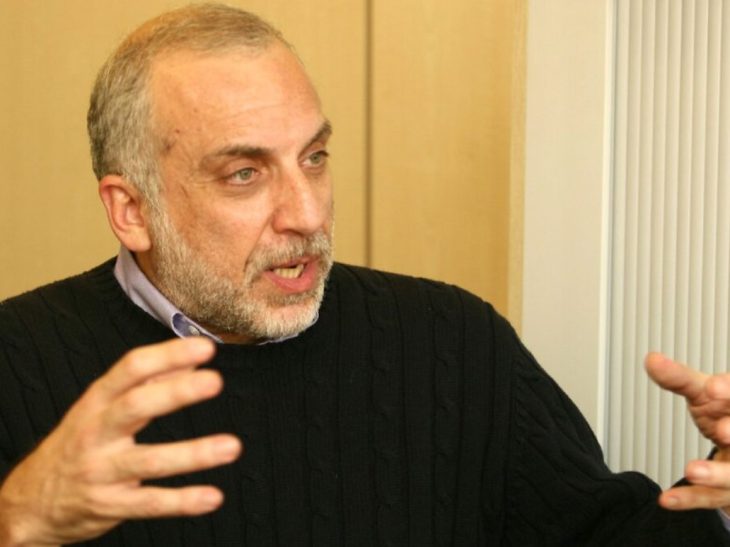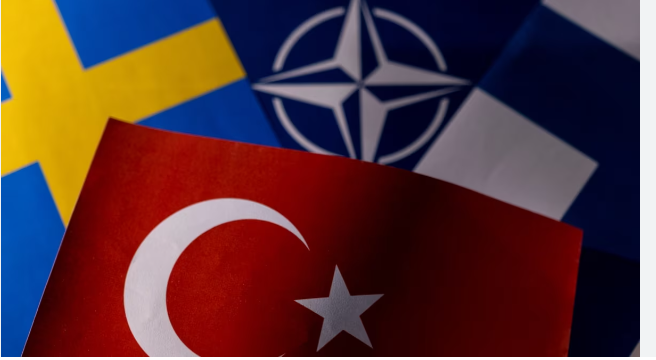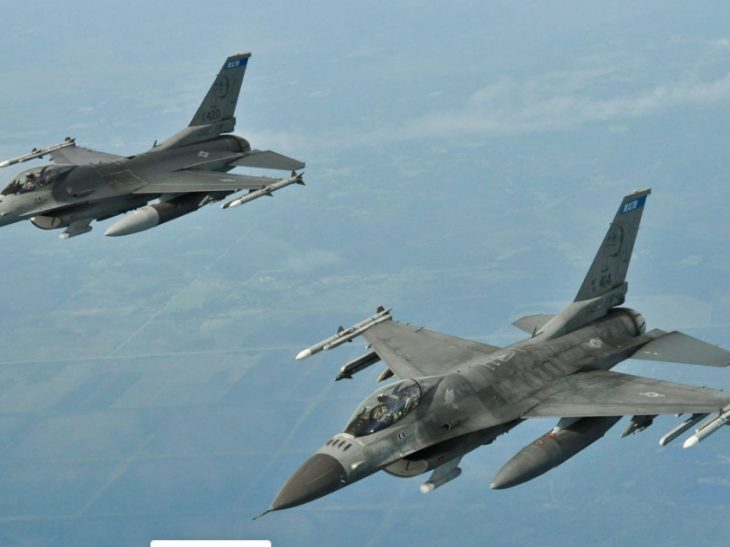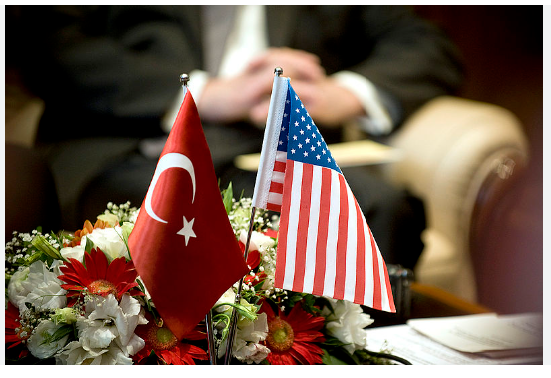Georgetown Security Studies: Turkey’s Pursuit of Regional Economic Power Upon its 100th Anniversary
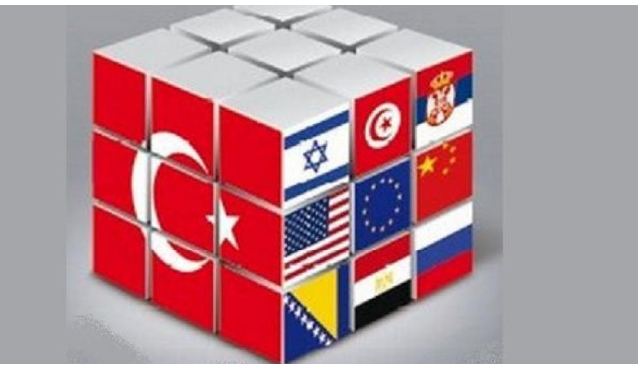 tr-foreign policy
tr-foreign policy
Under Erdogan, Turkey has reoriented her diplomatic focus to becoming a regional power. This is no simple task, as Turkey needs Western money and technology to support her economic development, while she is competing with two major regional powers, e.g. Russia and Iran.
Ankara has maintained an uneasy balance between Erdogan’s skepticism of the country’s traditional Western alliances and its historical imperative of checking Russian and Iranian power in her backyard.
This article by Georgetown Security Studies suggests that Turkey remains a key NATO ally and balancing actor in the Black Sea region. If the United States and NATO allies wish to rebuild a working political relationship with Turkey, they may need to critically consider Turkey’s growing regional role and how the West can strategically approach its economic and political relationship with Turkey.
On October 29th, Turkey celebrated the 100th anniversary of its establishment as a secular, Western-facing nation. However, since Ataturk’s founding of the modern Turkish state, Turkey has shifted from a Western-leaning, secular nation to one that is increasingly religious and disinterested in aligning with Western geopolitics and expectations. Particularly since the election of President Tayyip Erdogan in 2014, Turkey has increasingly championed Islamist causes and pursued a stronger regional geopolitical role. Turkey has sought to accomplish these aims by pursuing two distinct economic strategies.
First, Turkey has increased its push for energy partnerships in North Africa, particularly with Libya. Second, Turkey has increased its diplomatic and economic footprint in sub-Saharan Africa by providing direct aid packages for social and economic infrastructures, funding counterterrorism, and championing weapons and small arms deals.
Though its economic footprint in Africa pales to that of the United States and China, Turkey continues to position itself as a friendly alternative to these powers, especially for Muslim-majority countries. Turkey’s economic and political shift to Africa may initially alarm the United States and its NATO allies, but it presents them with a political opportunity as Turkey maps its way forward.
Turkey’s relationship with the West pre-2014 has fundamentally shifted
Today, Turkey is less motivated to maintain close economic and political ties with the West, and President Erdogan has indicated little interest in maintaining Turkey’s secular and pro-Western identity. Additionally, political disagreements between President Erdogan and President Biden have ratcheted up tension between Turkey and the United States, and the U.S. Congress continues to stall on passing Turkey’s long-awaited $20 billion F-16 fighter jet deal. For its part, Turkey’s parliament continuously delayed its decision to ratify Sweden as a NATO member, drawing Western frustration.
Finally, Turkey and the United States have taken vehemently opposing stances on the Israel-Gaza crisis, which only further contributes to the rift between the Erdogan and Biden administrations. Despite political challenges, Turkey and the West share a historical partnership and a mutual interest in curbing Russian and Iranian overreach in the Black Sea region.
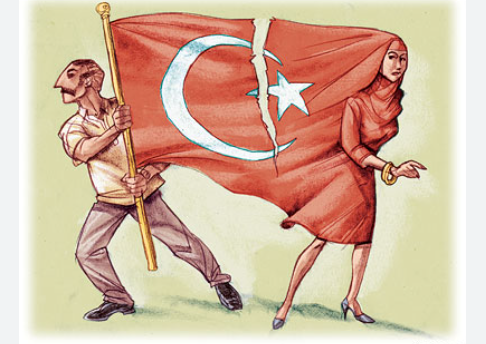
Turkey historically has been deeply concerned about Russian southward expansion, aiding the United States militarily to balance against the Soviets during the Cold War. Even today, Turkey supports Ukraine’s defense. Turkey and Iran are longtime regional rivals due to religious and political ideologies that are often at odds. The United States views Russia and Iran as revisionist actors and two of its most significant geopolitical adversaries. Between Turkey and the United States, there is a shared interest in maintaining Turkey’s relative political hegemony in the Black Sea region to curb Russian and Iranian influence.
As the world shifts to an era of relative multipolarity and great power competition, Turkey is taking steps to become an influential regional power
Notably, Turkey is “pivoting south” by strengthening its energy market in North Africa and deepening strategic economic and diplomatic connections with Sub-Saharan African nations. This is all while Turkey continues to struggle with energy dependence. In 2022, Ankara and Tripoli signed a memorandum of understanding on hydrocarbon exploration in the Eastern Mediterranean, and Turkey moved to increase its presence in Libya’s construction sector. Since 2003, Turkey has increased its trade with African countries by eightfold, has supported major construction projects in Sub-Saharan Africa, and has provided economic and military aid to many countries on the continent.
In 2011, Erdogan’s visit to Somalia was the first visit of a non-African leader to Mogadishu in about two decades. More recently, Turkey has narrowed in on a strategy of “drone diplomacy,” or providing drones and small arms to African countries, particularly those in the Sahel region that are combatting jihadist groups like Al-Shabaab.
As Turkey increases its influence in Africa, it emphasizes Turkey’s lack of ideological and colonial baggage and positions itself as a less exploitative partner compared to China, which has gained a reputation for debt-trap diplomacy.
Turkey’s actions demonstrate its vested interest in diversifying and strengthening its economy and building a reputation as a reliable regional leader
Despite political challenges, Turkey’s Western NATO allies remain “central to its aspirations” to increase its global power and influence. Similarly, though the United States and many European countries have a tense relationship with Turkey regarding human rights, governance, and, most recently, Erdogan’s outspoken support of Hamas, Turkey remains a key NATO ally and balancing actor in the Black Sea region.
If the United States and NATO allies wish to rebuild a working political relationship with Turkey, they may need to critically consider Turkey’s growing regional role and how the West can strategically approach its economic and political relationship with Turkey. Turkey’s energy dependence on Russia remains a concern for NATO allies, and Turkey’s emerging energy partnership with Tripoli may be one path for Turkey to diversify its energy imports.
Turkey’s growing economic influence in Africa is not yet at the level where it can compete with China or Russia for regional influence, but it serves as a salient alternative for countries seeking direct bilateral loans, infrastructure support, or small-scale military equipment
As Turkey reaches its 100th anniversary, it may be time for the United States and NATO to consider how they envision the future of the broader Turkish role. From the regional perspective, it is in the West’s interest to support Turkey as a balancing force against Iran. Within Africa, it provides a less belligerent and exploitative economic alternative compared to Russia or China. The United States may want to consider supporting Turkey in taking economic leadership roles in Africa.
Turkey’s economic and diplomatic objectives in Africa may be more closely aligned with the West’s political priorities than we realize.
Follow our English language YouTube videos @ REAL TURKEY: https://www.youtube.com/channel/UCKpFJB4GFiNkhmpVZQ_d9Rg
And content at Twitter: @AtillaEng
Facebook: Real Turkey Channel: https://www.facebook.com/realturkeychannel/



